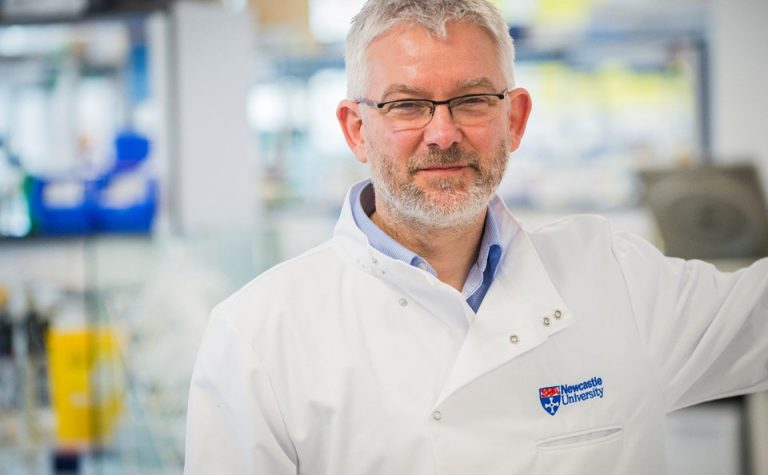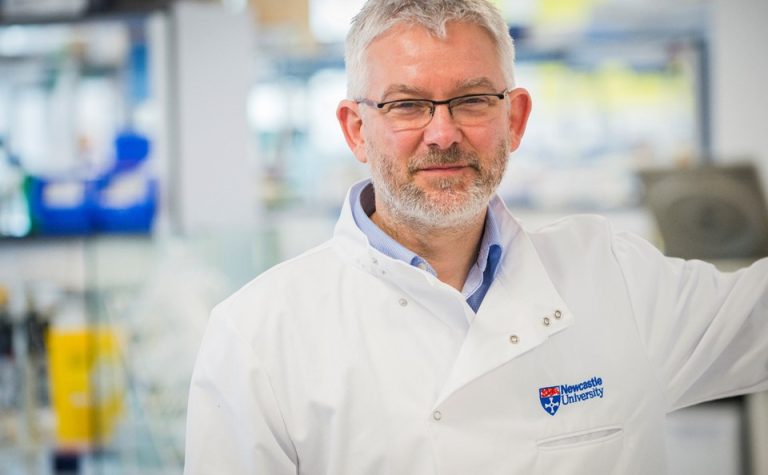- Low risk of pregnancy complications for most cancer survivors
- Survivors of cervical cancer and leukaemia are at risk of several serious obstetric complications; authors argue for consultant care in pregnancy as standard
- Study of 100,000 women finds significantly fewer births among cancer survivors
In a paper published in The Lancet Oncology today led by a research team at the University of Birmingham analysed data from almost 100,000 female survivors of cancer who had been diagnosed aged 15-39, between 1971 and 2006.
From that cohort, between 1997-2022 there had been 21,437 births recorded among 13,886 women who had survived a cancer, which was 32% lower than in the general population. Survivors of some cancers saw less than half the expected numbers of births, including breast and cervical cancers.
The data show that most expectant mothers saw a low likelihood of developing a complication in pregnancy or during birth, although there was a greater risk for leukaemia and cervical cancer survivors who were at increased risk of multiple complications, other specific cancers generally carried a low risk of complications.
To ensure that cancer survivors looking to start a family receive support and assurance about managing any risks, the researchers recommend that formal guidelines are introduced including ensuring that cancer survivors who are at risk of complications receive consultant-led antenatal care.
Dr Raoul Reulen from the Institute of Applied Public Health at the University of Birmingham and lead senior author of the paper said:
In the largest observational study of its kind, we can see that women who survived a cancer are still less likely to give birth than women in the general population. Women may experience increased worry about the risk of complications during pregnancy and delivery following a cancer diagnosis.
Our findings suggest that cancer survivors who didn’t have cervical cancer or leukaemia can feel reassured about their risks going into pregnancy as they do not greatly differ from the risks in the general public for the majority of obstetric complications. However, depending on their previous cancer type, some survivors were at a higher risk for one or two types of complications, for example our study found survivors of kidney cancer had an increased risk of gestational hypertension.
Only survivors of cervical cancer and leukaemia had an increased risk for more than two specific complications from among the 27 complications investigated. We hope these findings can provide evidence for the development of clinical guidelines relating to counselling and surveillance of obstetrical risk for female cancer survivors.
Case study: Diagnosed with cancer while 29 weeks pregnant
Nancy (not her real name) was in her 30s was 29 weeks pregnant with her second child when she was diagnosed with Multiple Myeloma in 2012. Her main complaint during routine ante-natal appointments was fatigue and blood tests showed extremely low iron levels. Further investigation and intervention including iron infusions and a bone marrow biopsy which confirmed the diagnosis.
After giving birth, Nancy had eight rounds of chemotherapy followed by an Autograft transplant in 2013. In 2015 she relapsed and following seven rounds of chemotherapy, a further Autograft and an Allograft transplant, has since been in remission.
Nancy who is a member of Anthony Nolan’s Policy Insights Panel, explained: “Being pregnant, my age and gender meant I was somewhat of an anomaly. I was outside of the normal range and cohort of patients affected by this disease and initially felt isolated, when looking for information to support me and my family’s rare situation. My Clinical Nurse Specialist (CNS) and Consultant were and continue to be empathetic to my needs as cancer patient and from the outset understood the necessity of having access to emotional well-being support alongside the medical intervention.
I found the findings of this study interesting and informative, particularly the impact of chemotherapy and conditioning treatment for girls and women who were diagnosed with a blood cancer. I think research focusing the complexities of cancer treatment for females of childbearing age with specific cancers is important to understand, at every stage of the female cancer journey.
The long-term effects are life altering and treatment options for cancer patients are as diverse as the patients themselves. The specificity of this study makes it useful and beneficial to my personal experience. Moreover, it gives me confidence in the future of further studies and understanding of pregnant mothers with cancer, pre and post treatment.
Ceren Sunguc, PhD researcher at the University of Birmingham and first author of the study said:
Our data shows that there are some specific cancers in female survivors that are having the biggest impact on births. Cervical cancer, leukaemia, breast and cancers of the genitourinary area not including the bladder, kidney, cervix or ovary had among the lowest birth rates.
Our findings give a much richer picture of how women who have survived cancer may be at risk of developing complications during pregnancy and birth, and we hope that the findings will enable better, more personalised care for women when they are expecting.
The study was funded by Children with Cancer UK, The Brain Tumour Charity and the Academy of Medical Sciences’
ENDS
For media enquiries please contact Tim Mayo, Press Office, University of Birmingham, tel: +44 (0)7815 607 157.
Notes to editor:
- The University of Birmingham is ranked amongst the world’s top 100 institutions. Its work brings people from across the world to Birmingham, including researchers, teachers and more than 8,000 international students from over 150 countries.
- The University of Birmingham is a founding member of Birmingham Health Partners (BHP), a strategic alliance which transcends organisational boundaries to rapidly translate healthcare research findings into new diagnostics, drugs and devices for patients. Birmingham Health Partners is a strategic alliance between seven organisations who collaborate to bring healthcare innovations through to clinical application:
- University of Birmingham
- University Hospitals Birmingham NHS Foundation Trust
- Birmingham Women’s and Children’s Hospitals NHS Foundation Trust
- Aston University
- The Royal Orthopaedic Hospital NHS Foundation Trust
- Sandwell and West Birmingham Hospitals NHS Trust
- West Midlands Academic Health Science Network
- Birmingham and Solihull Mental Health NHS Foundation Trust
Relevant publications include International Late Effects of Childhood Cancer Guideline Harmonization Group pancare guidance published in AJOG 2020: https://www.ajog.org/article/S0002-9378(20)30614-1/fulltext
Royal College of Obstetrics and Gynaecology have published green top guidelines on pregnancy following breast cancer: https://www.rcog.org.uk/guidance/browse-all-guidance/green-top-guidelines/pregnancy-and-breast-cancer-green-top-guideline-no-12/


